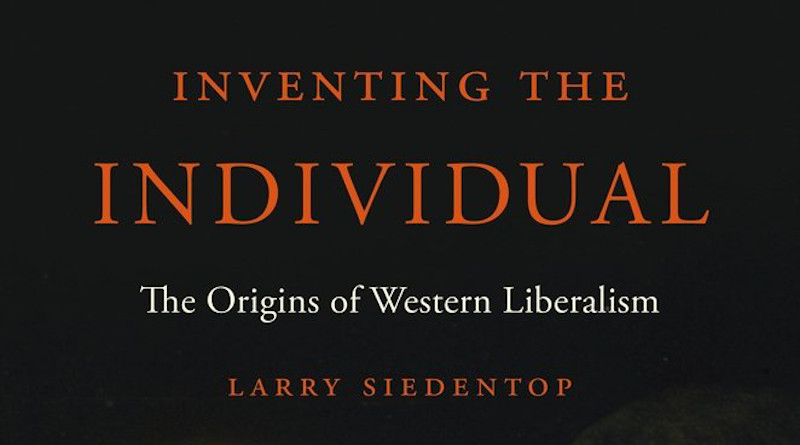‘Inventing The Individual: The Origins Of Western Liberalism’ – Book Review
In his monumental book, Inventing the Individual: The Origins of Western Liberalism (Penguin, hardcover 2014; Harvard University Press, paperback 2017), American-born, British intellectual historian Sir Larry Siedentop (Keble College, Oxford University) argues that Western “classical liberalism” has been the child of Christianity.
That is, the Judeo-Christian principles, understandings and intuitions, that evolved from the ancient world through the Middle Ages and onward, were necessary conditions for the development of the ideas of individual liberty, personal responsibility, private property, human dignity, natural rights and natural law, free markets, personal and civic virtue, mercy and forgiveness, limited government, and the rule of law that emerged and were later refined in the 1600s and 1700s.
The economist Daniel B. Klein of George Mason University has been propagating Siedentop’s work, and here are five recommended resources from him:
- Interview of Klein on Siedentop’s work in Svensk Tidskrift.
- Video of a conversation at Timbro in Stockholm, featuring Klein, Joel Halldorf (University College Stockholm), and Björn Hasselgren (Uppsala University).
- Reading group session videos led by Klein in the Institute of Intellectual History at the University of St. Andrews, Scotland.
- Klein’s elaborate notes on Siedentop’s book.
- Klein interviews the economist P.J. Hill (Wheaton College) on related themes (including the work of Siedentop) in the Institute of Intellectual History at the University of St. Andrews. Also please see Hill’s incisive article, “Judeo-Christian Thought, Classical Liberals, and Modern Egalitarianism” (The Independent Review, Summer 2017, pp. 49-58).
In addition, the work of the renowned sociologist Rodney W. Stark (Baylor University) is recommended. Here is a sampling:
- Bearing False Witness: Debunking Centuries of Anti-Catholic History (Templeton Press)
- For the Glory of God: How Monotheism Led to Reformations, Science, Witch-Hunts, and the End of Slavery (Princeton University Press)
- “How Christianity Led to Freedom, Capitalism, and the Success of the West” (The Chronicle of Higher Education)
- How the West Won: The Neglected Story of the Triumph of Modernity (ISI Books)
- The Rise of Christianity: How the Obscure, Marginal, Jesus Movement Became the Dominant Religious Force in a Few Centuries (HarperSanFrancisco)
- The Triumph of Christianity: How the Jesus Movement Became the World’s Largest Religion (HarperOne)
- The Victory of Reason: How Christianity Led to Freedom, Capitalism, and Western Success (Random House)
This article was published by The Beacon

